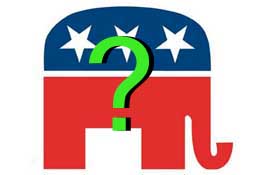 The standard of good governance in the Republican party has become this won’t be the end of the world.
The standard of good governance in the Republican party has become this won’t be the end of the world.
Let’s rewind. The country has been riddled with Congress-made crises for the past few years, from sequestration, to threats of government shutdowns, to refusals to raise the debt ceiling. The Republican party has used these items as bargaining chips in attempts to extract absurd concessions e.g. repeal Obamacare. Instead of using normal negotiating tactics, they’ve opted for a series of hostage negotiations where they use threats of catastrophe to get what they want.
When they first started this they never went through with their threats and last-minute deals were always made. But not any more. At the beginning of this year, sequestration, a law never meant to go into effect but merely force a compromise, went into effect. The Republican response to furloughed workers, de-funded Head Start programs, and cancer clinics turning away patients was that this is not the end of the world. In fact, these cuts will actually help economy. Goldmach Sachs disagrees – but that’s for another day.
Recently, Congress, faced with the threat of a government shutdown, did in fact shut down the government because Republicans were upset Democrats refused to repeal Obamacare. The Republicans have every right to repeal a law but not to use repeal as an ultimatum. Now that the government shut down it means more furloughed workers, WIC (Women, Infants, and Children) recipients receiving less care, and the National Parks closing. The Republican response to this is a shutdown isn’t the end of the world.
And now the government is about to reach the debt limit and Congress is debating whether to raise the debt ceiling. If we choose not to the government will default on its debt for the first time in the nation’s history; it will be catastrophic to the world economy. At first Republicans agreed with this sentiment, but as we approach the date Republicans are re-thinking their position. Some are saying breaching the debt ceiling wouldn’t be all that bad. Some are saying we won’t default since the government can prioritize payments – a process Treasury Secretary, Jack Lew, said would be “Chaos.” Even if this were possible it would still mean other government payments would cease; “Surprise! No Social Security for you this month!” But hey, it wouldn’t be the end of the world…
And that’s where we are now. We have one party who believes so long as the negative consequences of their actions aren’t the end of the world then it’s not that big of deal. So long as the country isn’t imploding on itself then it’s okay to go from one hostage negotiation to the next in order to do what… Lower taxes? Cut entitlements? Try once more to repeal Obamcare? Sequestration and the government shutdown were not the end of the world, but they still caused unnecessary suffering and hardship. Breaching the debt ceiling will only add to that. Simply because something doesn’t create an absolute disaster should not be the standard of good governance. The sad thing is Republicans are content with precisely this measure.



 Circulating through the blogosphere and social media is
Circulating through the blogosphere and social media is  It seems the only time the issue of guns and gun control is at the forefront of the national conversation is after a tragedy like that of Sandy Hook Elementary School. At the same time though, as the nation ponders the issue, there are also societal murmurings and whispers that we must not politicize this event, or use it to advance political agendas. Here lies the crux of the problem of gun violence in our country. The only time we as a society think about reforming gun laws occurs simultaneously with an understanding that we must not use one event – one tragedy – to determine the laws of our nation.
It seems the only time the issue of guns and gun control is at the forefront of the national conversation is after a tragedy like that of Sandy Hook Elementary School. At the same time though, as the nation ponders the issue, there are also societal murmurings and whispers that we must not politicize this event, or use it to advance political agendas. Here lies the crux of the problem of gun violence in our country. The only time we as a society think about reforming gun laws occurs simultaneously with an understanding that we must not use one event – one tragedy – to determine the laws of our nation.



